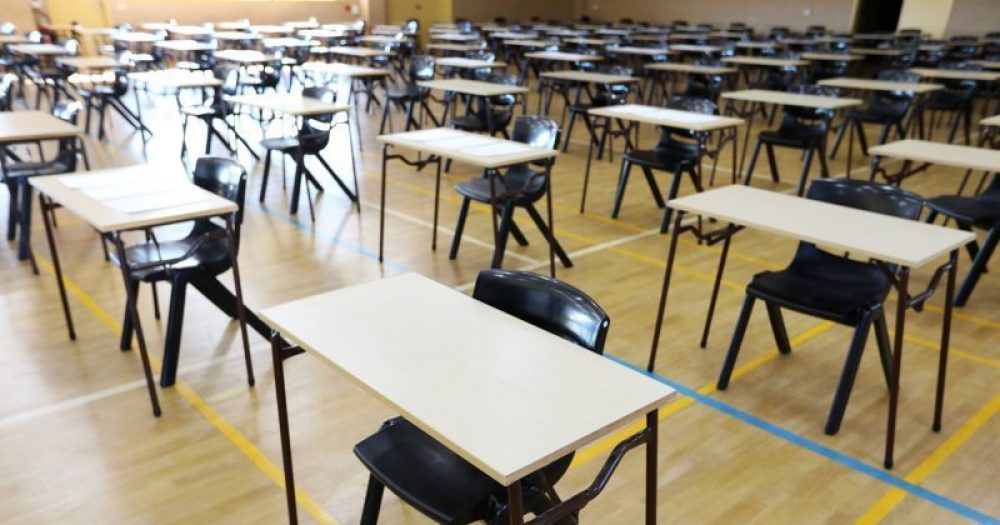Schools can now delay paying exam fees after boards offered concessions following a backlash about their plans to raise prices in a year when exams will not be held.
A Schools Week investigation revealed last week that boards had increased their fees across GCSEs and A-levels between 2 and 5 per cent.
They had pledged to return any savings when exact plans for their involvement in producing grades were known.
But two boards have now put off asking for the full cash from schools, with another reviewing its approach.
Geoff Barton, the general secretary of the Association of School and College Leaders, said a “more sensible and considered approach” for fees payment was “welcome news”.
“At a time when heads are under intense daily pressure, they do not need the added financial worry that uncertainty about fees brings. We made our feelings on the matter clear,” he said.
“Thankfully common sense seems to have prevailed and we look forward to learning more about the arrangements exam boards are putting in place for assessing qualifications.”
At AQA, a mathematics GCSE has risen from £36.50 last summer to £38.35, an increase of 5 per cent.
It means an average size secondary with 200 year 11s taking nine GCSEs could face paying an extra £3,870. Price increases vary between subjects.
Schools Week analysis shows that if the entry numbers for 16-year-olds are the same as last year, AQA – a not-for-profit organisation – could rake in an extra £4.17 million from these nine subjects. More than 1.6 million pupils entered these nine GCSEs last year.
The board said on Friday it had listened to school and colleges and changed its approach.
Mark Bedlow, its chief operating officer, said: “We understand the financial pressures that schools and colleges are under – so, if they’d prefer, we’d be happy for them to pay 50 per cent of the published fees now and, when we know what our final costs are, we’ll ask them for the difference.”
OCR exam fees, published at the end of last week, show a 3 per cent increase. A maths GCSE has risen from £41.75 to £43, £1.25 extra.
Across nine GCSEs this could cost an additional £11.25 extra for each pupil, and over a year 11 cohort of 200 pupils, about £2,250.
If entry rates are the same as last summer for these papers, OCR could make an additional £180,941. Almost 145,000 pupils entered these nine GCSEs last year.
This week, OCR told Schools Week it was delaying its invoicing until it had the results of the Ofqual and Department for Education exams replacement consultation. This would help schools “to manage their budgets”.
The deadline for exam entries for all boards is February 21, which is days before Ofqual is expected to announce the final plan.
An OCR spokesperson said: “This will give us and schools and colleges time to understand the outcomes of the consultation and create an approach that will avoid extra work for schools and colleges at a busy time.”
The board said this could mean it adjusted its fees before invoicing schools and colleges. But if it didn’t have enough information of costs at that stage, it would refund schools as soon as it had clarity.
Meanwhile Pearson has now said it is “carefully reviewing” how best to support schools with payments amid “budgetary challenges”.
Fees at the board had increased about 2 per cent. If entry numbers are the same as last summer (672,420) across nine GCSEs, then Pearson could bring in an extra £569,571.








Exam Boards should delay invoices and adjusted them before they are sent out.
Students should not be required to do ‘new tests’ as it would literally mean that there are doing the exam. The students should get to go progress checks, mini assignments online since other tests would further affect the student’s mental health because lockdown could’ve affected people in many different ways. Therefore, it’s best to stick to teacher assessment and grading because that was what took place last year and it’s the best alternative since exams are cancelled.
I am old enough to remember CSE and GCE, and a time when teachers were paid to mark work.
Why is the government not stepping in about this piracy?
Teachers now mark work and exam boards provide a rubber stamp. The appeals process is grey at very least, but it looks as though the exam boards will provide admin only. For even more money, and no guidance for teachers, bar papers they could have set themselves?